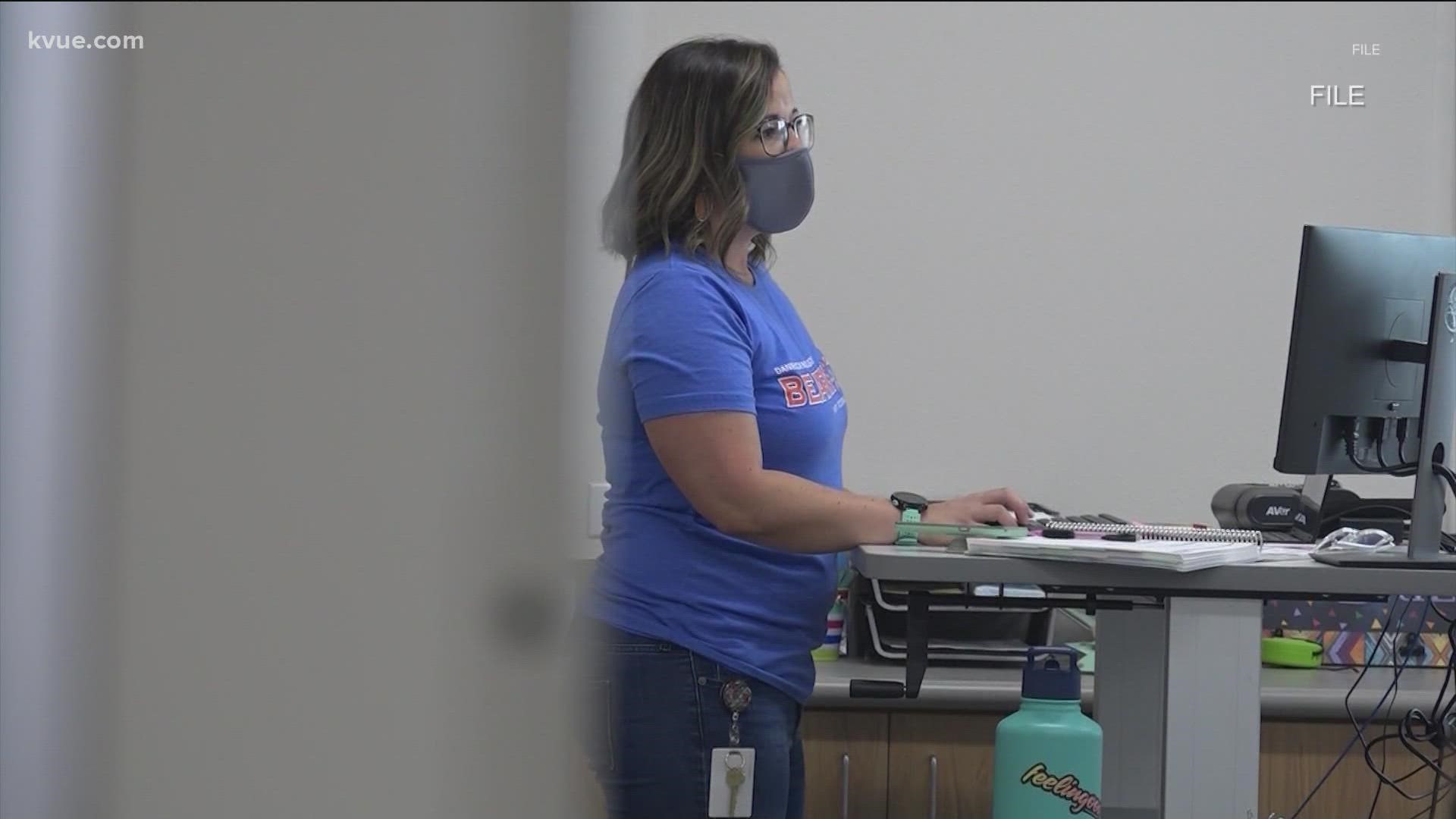AUSTIN, Texas — Tuesday, Aug. 17, is the day that Austin ISD students enrolled in on-campus learning return to their classrooms. But the big day comes as COVID-19 cases and hospitalizations continue to surge in Central Texas.
AISD Health Director Alexandra Copeland joined KVUE Daybreak to discuss what the district is doing to keep COVID-19 at bay on campuses. KVUE asked its viewers what questions they have as their students return to class.
Austin ISD is requiring masks, going against Gov. Greg Abbott's order. How hard of a decision was that for the district to go up against the governor?
Copeland: "As far as masks, we required masks last school year and we know that it works. That was one of our safety measures that we had in place. And we know from the research and the science that masks work and it stops the spread. We did not see spread in our classrooms. And so, we entered into Stage 5 in Austin-Travis County and, you know, we knew that we had to keep our kids safe and we had to keep them No. 1. So, we will be requiring masks for all students, staff and visitors that are on our campuses."
What about lunchtime? Students have to take masks off to eat. Will they be going to the cafeteria? How will lunch look now?
Copeland: "So, lunch will look different depending on the campus that they're at. We really want to customize this to the campus and what their available resources are and what their layouts are. So, the biggest thing is we're really going to be encouraging outdoor eating spaces. And that's good just for vitamin D and a lot of other things for the kids. And as far as in the cafeterias, we may have some kids that eat in the cafeterias that are split up into smaller groups, also with seating charts. We could have campuses that have kids eating in the classrooms. And so, it's really going to be dependent, you know, upon the campus.
But we will have all of our other health and safety measures in place. So, you know, hand sanitizer, everybody will have to use that before they go through the line. We'll have plexiglass there. Again, really making sure that kids stay in small groups and they are, are separated. And so, you know, I know that, again, it's going to look different on every campus. So, we're encouraging people to reach out to their campuses and ask how it's going to look at their campus."
If there is a positive case on campus, how are parents going to find out and what happens from that point on?
Copeland: "That's a really good question that we keep getting. So, you know, one thing that I have been mentioning just throughout the last several weeks is that AISD has a public health team, a COVID response team that individually responds to every single case. And so, we have this, these protocols in place last year that we're going to be following into this year.
And, you know, [the] TEA came out and said that we don't have to notify families if we have a positive case, but Austin ISD, you know, really wants to remain transparent with our families. So, when we do have a positive case, we will have our campus positive case notification letters that go out to the campus. We will be updating our dashboard daily so families can go and look through that. But also we will still be doing contact tracing. And so, you know, if we have a student or staff member or anybody else that was deemed to be in close contact, we will make contact with them and they will receive a quarantine notice with, you know, instructions and support from us as a district."
What can we do to help support all the teachers, staff and our kids during this next school year?
Copeland: "The biggest thing that I have been telling people is I think the thing that is most helpful is, you know, we have these health and safety measures implemented on our campuses. But it's also so important that people also follow those health and safety measures off-campus. And so, you know, I've been saying the four biggest things that people can do is to get vaccinated if they are eligible to get vaccinated; to make sure that they are washing their hands frequently; to make sure that they wear a mask that covers their nose and their mouth, especially when they're around people, you know, that are not in their households; and then to also stay home if they're feeling sick.
And so, we have so many different supports and resources on our campuses. And so, if somebody is feeling sick, you know, we encourage them to contact their campus so we can provide that support and do contact tracing. But then also take advantage of our available resources. So, we will still have, you know, rapid testing in our health rooms for students and staff and then we're going to be continuing our vaccine efforts for anybody that needs it and is eligible."
PEOPLE ARE ALSO READING:

